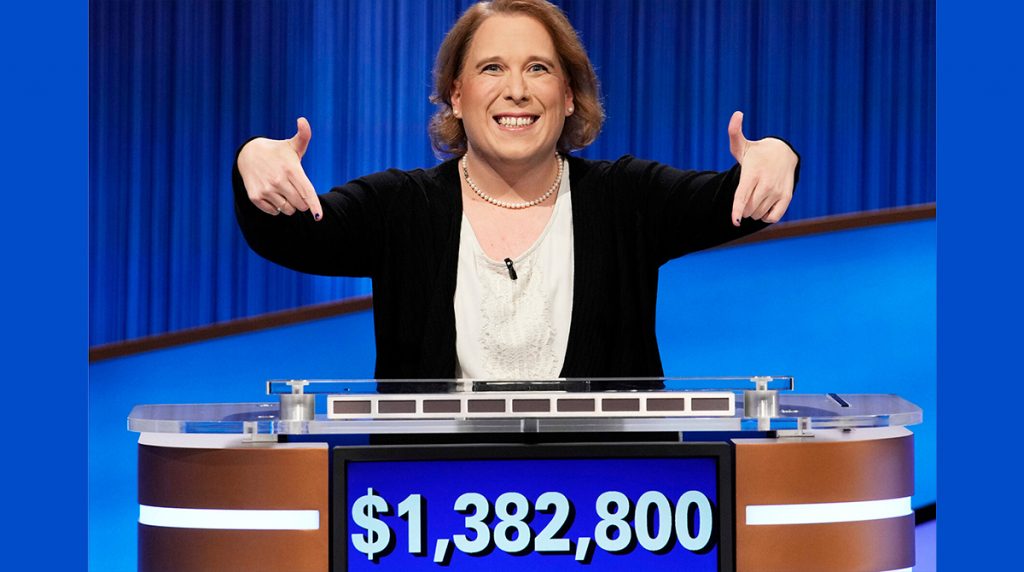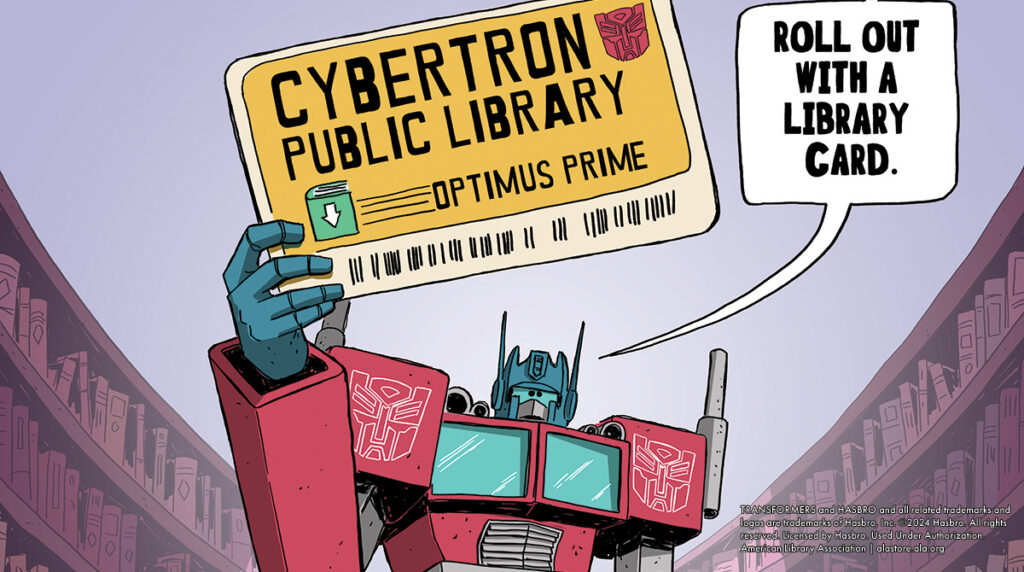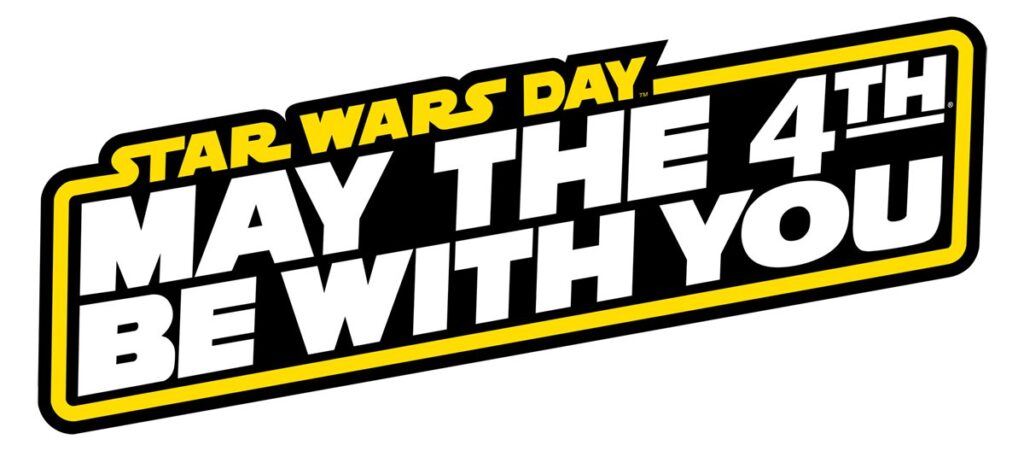Amy Schneider is an American software engineer and recent Jeopardy! champion. Following an impressive 40-game winning streak (which ended January 26 when Schneider narrowly lost to Rhone Talsma, a librarian from Chicago Ridge [Ill.] Public Library), she became the most successful woman ever to compete on the show. She is also the first openly transgender contestant to qualify for Jeopardy!’s Tournament of Champions.
In the leadup to Schneider’s talk on March 25 at the Public Library Association’s 2022 Conference, Schneider spoke with I Love Libraries about her experiences on Jeopardy!, the importance of trans representation, and the role of libraries in her life.
Congratulations on your success on Jeopardy! Did you ever imagine you would have such a historic run on the show when you stepped onto its stage that first time?
Not at all. I thought I could win three or four games, at most, if things went well. I knew I was pretty good at it, and I definitely had the confidence that I was capable of winning some. But yeah, nothing, nothing like this.
Have you been a Jeopardy! fan your entire life?
I have, yes. I grew up with it. My parents watched it, and I don’t remember a time when it wasn’t around.
When did you first decide that you wanted to be on the show? Was it a lifelong dream of yours?
Yeah, more or less. I’ve been auditioning [for it] since maybe 2007 or 2008, somewhere in there. It’s been a long time.
What’s the difference between watching the show at home and being there as a contestant? What was going through your mind during your run?
The first difference I would say is that it goes by so fast when you’re out there; like you just blink and it’s over. Beyond that, I was really trying to think as little as possible really; to not think about where I was and just focus on the questions and try to eliminate distractions in my mind. Especially that first time, there was a lot of anxiety that I was trying to ignore.
How did you prepare for the show? Did you turn to your local library, or any library, for help at all?
You know, I tell people that Jeopardy! is something that you can’t study for, because it is just too broad and covers too much. But I think, in that sense, certainly all of my library usage over the years has [helped with] that. Apart from just being generally interested in reading and learning, I went through [footage of] old Jeopardy! games to look for patterns in what they asked and for things I was consistently missing.
Did the library play an important role in your life growing up?
Yeah, it did. I told the anecdote on the show about when I was a little kid my parents instituted a rule that I could only borrow from the library as many books as I could carry home by myself. It was definitely a thing as a family. We were always going to the library. We didn’t have much money at all, especially when I was very young, so buying books wasn’t really an option for us. But library trips were always there.
You’ve had a long career as a software engineer. How did how did that inform your Jeopardy! appearance both as you prepared for it and during the tapings?
The thing about engineering that drew me to it was the creative aspect of it. As I got into it, I realized that it’s really an act of translation. You’re trying to explain things to a computer, which is very dumb, and that forces you to examine all the unstated things that go into the requirements that are obvious; [things that] don’t need to be spelled out to a human being but have to be spelled out to a computer. I think that practice of trying to break down things down into their simplest parts and really understand them has been a good mental habit to develop.
You’re the first trans person to qualify for Jeopardy!’s Tournament of Champions, and you’ve spoken at length about how meaningful that’s been in terms of trans representation. How important was it for you, the trans community, and the world at large to be successful on the show?
I definitely know in my own life how important representation is. When I was a kid, I didn’t even know of the concept of trans people. When I started to become aware of their existence, they were always painted as jokes or criminals or weirdos or these sorts of things and not as normal people. That kept me from understanding myself and my identity for decades. I think about how meaningful it would have been to me as a child and as a young adult to see a trans woman on a show that I watched all the time and to see them just hanging out and being who they are and not being weird basically. I’ve been surprised by how many people who have reached out to me to talk about how much it’s meant to them—and in particular to their families, to the parents, and grandparents—in helping them understand each other in a way that they hadn’t before.
You’ll be speaking at the upcoming Public Library Association conference. What do you hope that librarians can learn from your experiences?
The message I hope to spread is what reading and learning can give you. Jeopardy is just one thing that could come out of it. It’s fun in itself and enjoyable in itself. Forming networks of association by reading widely and then seeing the connections between things that you might not have seen before–between history and science, or art and philosophy or all these other things– helps you understand all of them better and helps you have a more full understanding of the world and where you live in it.
Photo via Jeopardy Productions, Inc.



